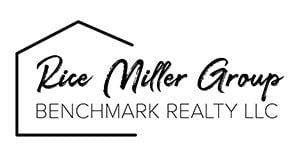What Are Your Closing Costs?
Guest Post by Tim Britt
Last month, I talked about the first (and sometimes only) question asked by some consumers “What’s Your Rate?” The next question asked is some variation of “What Are YOUR Closing Costs?” I always get a chuckle when I hear this…because, as a lender, our part of the “Closing Costs” represents a small percentage of the overall total amount. So to help illustrate and clarify, keep in mind that there are three costs a buyer incurs when obtaining a mortgage to purchase a home:
- Down Payment – the amount paid in cash when, subtracted from the purchase price, is used to arrive at the loan amount.
- Pre-Paid Expenses – expenses required to be paid at closing, in advance of their due date.
- Closing Costs – fees and costs associated with originating and closing the loan, and transferring ownership.
Let’s leave the Down Payment topic for another month, and focus on the Pre-Paid Expenses and Closing Costs.
Pre-Paid Expenses
Pre-Paid Expenses are very specific and listed below:
- Homeowner’s Insurance. Lenders require that annual homeowner’s (aka Hazard) insurance premiums be paid in advance. The initial years’ premium is collected at closing and paid directly to the insurance carrier.
- Pre-Paid Interest. Mortgage interest accrues in arrears; meaning that when a mortgage payment is made on the 1st of the month, the interest paid was accrued during the previous month. On the date of closing, interest begins to accrue from that day to the last day of the month…and this pre-paid interest is collected for the number of days remaining in that month. This is the premise behind skipping the first months’ payment when you purchase a home.
- Escrow Deposits. Most buyers choose (or are required) to escrow their property taxes and homeowner’s insurance. Simply stated –the lender collects a portion (1/12) of the annual amounts due for each (taxes and insurance) with each monthly payment, deposits them into an Escrow Account, and then pays the bills on behalf of the homeowner on their due date(s). The Escrow Account is basically a bank account set up on behalf of the borrower. This account must be seeded with some funds to start it up in order to create a “cushion” to ensure there is enough to pay each of these liabilities when they become due. By law – only 2 months above the required amount may be kept on deposit, once the liability is paid.
Closing Costs
Closing Costs are the fees and taxes associated with originating and closing the loan, as well as transferring ownership of the property. Some of these expenses are costs that a cash buyer may not incur and are indicated by an asterisk *. Additionally, the costs that are attributable directly to the lender are indicated by an “L.”
- Government Transfer Taxes
- Deed Recording Fees
- HOA dues, transfer fees and capital assessments
- Broker Administrative Fees
- Title Company – Settlement Fee(s), title search, wire fees, etc.
- Owner’s Title Insurance (optional)
- Lender’s Title Insurance *
- Appraisal *
- Lender’s Administrative Costs (Processing, Underwriting, Closing, etc.) – * L
- Discount Points – origination cost for obtaining the borrower’s interest rate –* L
So – unless there is an “L” next to it, all of the costs/fees listed above are going to be essentially the same, regardless of the Lender you choose. The better question to ask a prospective lender is… What are your lender fees, and what are the origination charges/discount points for the interest rate you’re quoting me? By narrowing down the “Closing Cost” question to the fees directly associated with the Lender, it will be easier to compare “apples-to-apples” and choose the one who best meets your financial needs!

Tim Britt is a Senior Mortgage Loan Officer (NMLS 1369718) with Fifth Third Bank in Brentwood, TN. He can be reached at 615-415-8887 or [email protected].
window.dojoRequire([“mojo/signup-forms/Loader”], function(L) { L.start({“baseUrl”:”mc.us13.list-manage.com”,”uuid”:”b3560441a030ec3ce9b8bfb77″,”lid”:”4f35c52094″,”uniqueMethods”:true}) })




